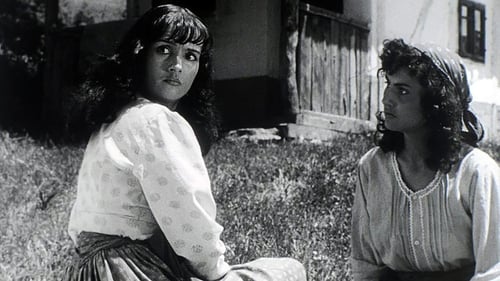Jovan Milićević
Birth : 1923-09-04, Sarajevo, Bosnia and Herzegovina
Death : 1992-11-05

In Savamala, the most notorious part of Belgrade, lives an eighteen-year-old young man. In this turbulent atmosphere, different passions collide, and there are hints that the bloody strikes are a prelude to a major battle. The young man tries to escape from the slums and live in a better society. He falls in love and draws comics, while Savamala offers him the misery of everyday life, the world of criminals, gamblers, anarchists, singers and failed poets.

Hadži Toma
TV adaptation of the Bora Stankovic drama, the most staged play in the history of Serbian theatre. Set in the southern Serbian town of Vranje, it is a tragedy about a Gypsy singing girl destined to marry but not for love. The old man Mitke loves her beauty and singing, but doesn't love her as a woman. Her talent and free spirit reminds him of his youth, young age and all he had to sacrifice for loveless marriage and unhappiness in order to fit into conventions.

Predsednik suda
A TV drama set shortly after WW2 about court trial of former German generals accused for bombing the Yugoslavia's capital Belgrade.

Pukovnik
In order to check the German offensive, Partizans send an elite team of explosive experts to blow up a strategically important bridge. Besides being heavily guarded, that bridge is almost indestructible and the only man who knows weak spots in the construction is the architect who built it. He is, however, reluctant to cooperate because he doesn't want to see his masterpiece destroyed.

Kapetan Vuk
This film predominantly deals with the problems of a young man whom his delusions led into conflict with society. These issues will throw him into an adventure that would be tragic for him, but still helpful for him to see the truth. The story takes place in Kosovo in 1945, in an atmosphere of uncured wounds, wandering, betrayal, burned homes, typhoid and other postwar misery. An authentic story from those days was taken as the film's basis.

Miftar
Three partisans come to a fascist held town at the end of the war to create diversions. Their protector is tortured to reveal their whereabouts, but the partisans arrive in time.

Vojvoda Peko Pavlović
A Serbian hero Mićo Ljubibratić from Herzegovina raises an uprising in eastern Herzegovina against Ottoman and he makes it clear to the Western powers, especially the Austrians, that the annexation of Herzegovina to Austria is out of the question if the newly formed Herzegovinian Assembly does not make such a decision on its own.

Agent Mile
Story of an old university professor, who accidentally becomes involved in the activities of the resistance movement.

Following an accident in the mine on New Year's Eve, the task of bringing oxygen to the buried miners is to be performed. Driven by jealousy, Pavle founds himself in a dilemma of killing his wife's former lover, or saving the miners' lives.

Vladimir Patrik
A group of railroad workers decide to make extra money by smuggling forbidden goods and engaging in other criminal activities. The first crime film made in Yugoslavia.

Sejdo
Village drama of love and hate among the Gypsies.

Nikola, telegrafista
A group of former members of the Gestapo participates in espionage activities, helped by a group of locals, dissatisfied with the new authorities. However, members of the Yugoslav secret police, the infamous UDBA, are on their track. This is the first Yugoslavian spy film.

Mato
Bad weather, farmers who do not allow the dumping of their estate, and people who are willing to sabotage for ideological reasons, disrupt the building of hydro-power on the Neretva river. Upon completion of construction, the benefits of electricity assures people of the necessity of progress.

Apostolos
The plot takes place during the Civil War in Greece, and it shows the fight of communist partisans, against the pro-Western, monarchist government. During the shooting, there was a discord between Yugoslavia and the Soviet Union because of the famous IB resolution, which caused Yugoslav authorities to stop supporting Stalinists. Tito's government acknowledged Greek monarchists as a legitimate government, and not wanting to remind the public of their ideological discrepancy, bunkered "Majka Katina" for a few decades.












